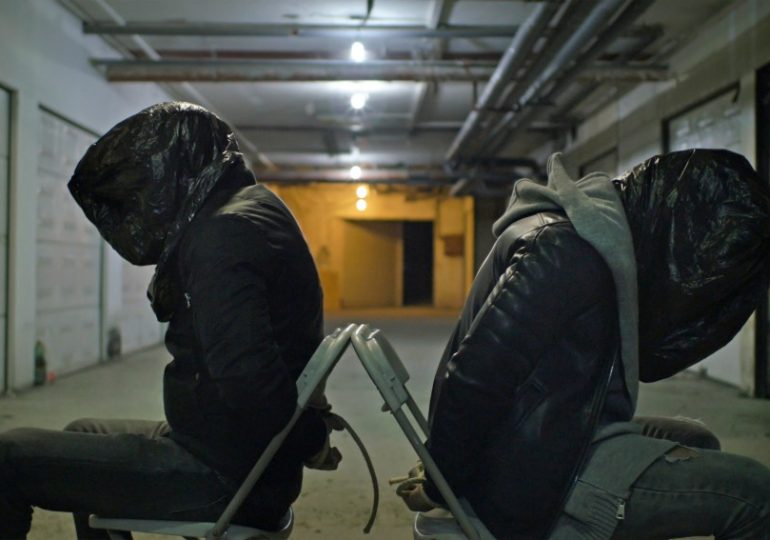FROM chatting with pirates to delivering ransom in tiny parachutes, a hostage negotiator has revealed how his job is nothing like Hollywood films.
After spending 16 years at Scotland Yard, Scott Walker became a ransom negotiator – and said dealing with kidnappers is not too different to “sitting on a kitchen table with your family”.
GettyHis job is to deal with the kidnappers and secure the safe release of the hostages[/caption]
APScott’s daily routine involves trying to negotiate with Somalian pirates[/caption]
Scott WalkerScott Walker left the police in 2015 to become a ransom negotiator[/caption]
Since leaving the police in 2015, the dad-of-two has worked in over 300 cases all over the world – from South America, and West Africa to the Middle East and the Philippines.
When a businessman has been abducted abroad, Scott’s job is to jump on a plane, liaise with the kidnappers and work with his elite team to secure the man’s release.
Speaking to The Sun, he explained that one of the biggest challenges of his job is to get the hostage’s family to cooperate at “the most stressful, challenging time of their lives”.
Recalling a case where things didn’t go to plan, he said: “In this case, I’m overseas I’m with the family on the phone to the kidnappers and the brother lost his rag and got very frustrated.
“He threatened the kidnappers who simply said ‘OK we’re going to kill your brother now’ and hung up.
“And we didn’t hear anything from them for three months.”
In another case, he said the team was forced to beef up security and get two response vehicles with heavily armed officers after receiving a chilling threat from a group of gangsters.
“On the phone with the kidnappers, they said ‘we know where you are, we know you are working with the police, we’re going to come along and we’re going to spray the place with a Mac 10 machine gun’,” Scott explained.
While the circumstances vary from case to case, there is a standard procedure when it comes to being a negotiator, Scott said.
“The kidnappers will do their pre-abduction surveillance – rarely someone get abducted because they were at the wrong place at the wrong time,” he explained.
“They may delay the demand for a few days to put extra pressure on us.
“Our job is to get a small team together from the family or the company and reassure them and find someone who is going to be able to speak to the kidnappers.”
When speaking to the abductors, a crucial step is to assure them that they are willing to find a solution.
It’s also important to get proof of life of the victim by either getting them on the phone or on a video call and asking them a question only they would know the answer to.
After the kidnappers make their demands the key is to “make them feel the extracted the best deal they could”, according to Scott.
Once an agreement is reached, the most “dangerous aspect of the operation” arrives, Scott said.
This is the delivery of the ransom money without “getting robbed or arrested or ripped off” and getting back the hostages safely.
“Bizarrely it’s built on trust – it’s trust with an organised criminal kidnapping gang,” Scott said.
“We have to build our trust with them and they have to build their trust in us.
“The ransom money could either be left on the side of the road, dropped off at a clearing in the jungle, or even put on a boat taken out to sea that will be met by another boat.”
But the former cop explained that the scenario rarely plays out like it does in films.
“Very rarely the hostages will be handed over simultaneously, not like in the movies,” he said.
“During the Somali piracy days, my colleagues came up with a creative way of getting the money to the pirates out in the Indian Ocean.
“They would get a small plane with a hole in the bottom and they would put the ransom money in waterproof bags and attach little parachutes to them and drop them into the ocean.
“That was probably the most interesting way to deliver the money.”
But Scott believes negotiating with criminal gangs is no different than any other interaction – adding that “life is a negotiation”.
And he stresses that the single most important skill to negotiate is emotional self-regulation.
“It’s not about manipulation it’s simply about thinking about long-term cooperation and collaboration,” Scott said.
“The same as in a business, we want the customer to come to us time and time again.
“Operation is key. For every kidnap negotiation be really prepared.
“What state do we need to be in, what’s the outcome of this call, what are the likely challenges, threats or issues we’re going to face.
“That’s not different than sitting on a kitchen table with your family- what are we dealing with here what are we trying to achieve?”
Scott is the author of the Order Out of Chaos: How to become a World-Class Communicator and Win Every Negotiation.
He was a guest speaker at CrimeCon in London. The next CrimeCon event is on September 21 and 22.
He says hostage negotiation is not like in films (Kidnapping scene from 2013 Captain Philips)Alamy
AlamyScott admits that hostage situations are stressful but says the key is control of one’s emotions (file image)[/caption]
AlamyDelivering the ransom money is one of the most stressful parts of the operation, according to Scott (file photo)[/caption]
Leave a comment








